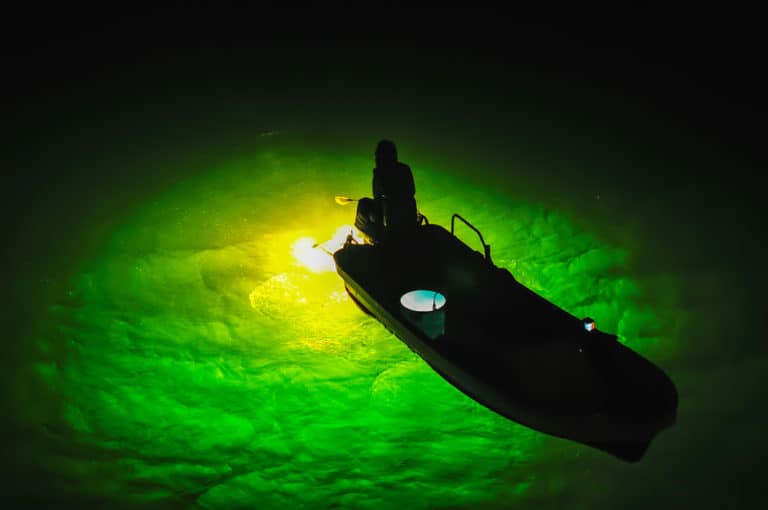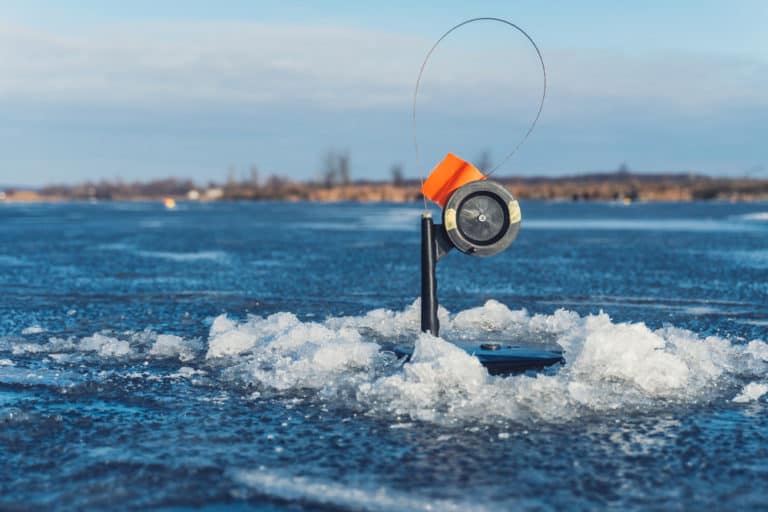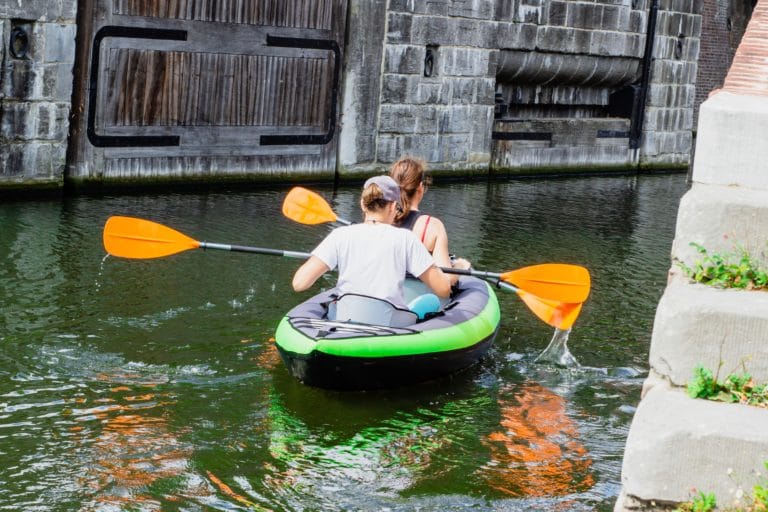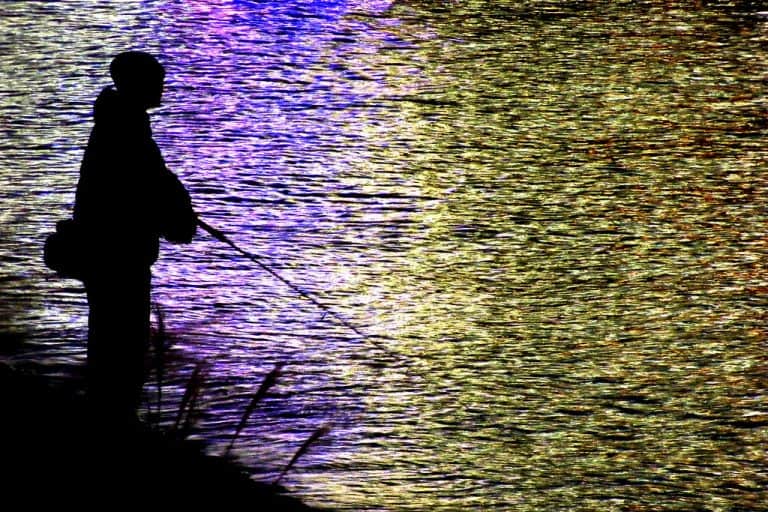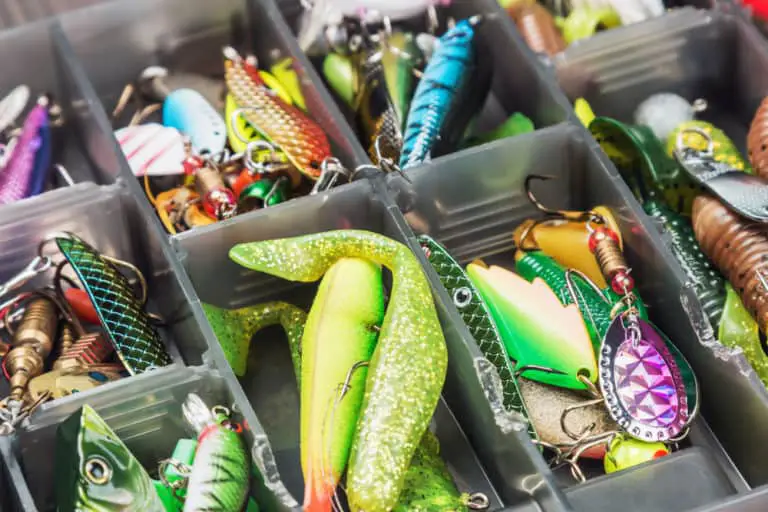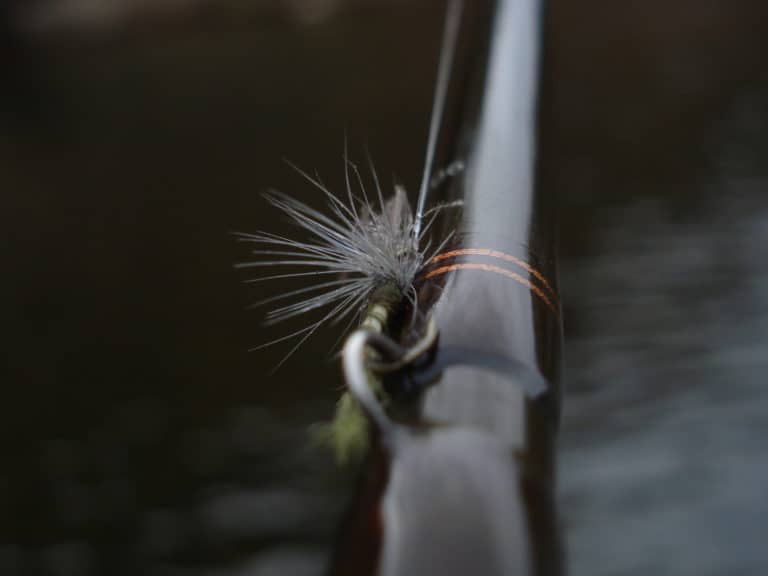Fishing In The Rain – Is It Better To Fish In The Rain?
We all love fishing, and we all want to spend as much time possible casting our line in the water year-round. Unfortunately, the weather is not always glorious, and fishing in the rain might actually be a better option if you are having no luck landing fish lately.
So is it better to fish in the rain? We have covered the pros & cons of fishing in the rain below. Followed by some top tips and safety advice so you can make the most of your time hunting down your next catch.
Let’s dive right in!
Advantages of Fishing in the Rain
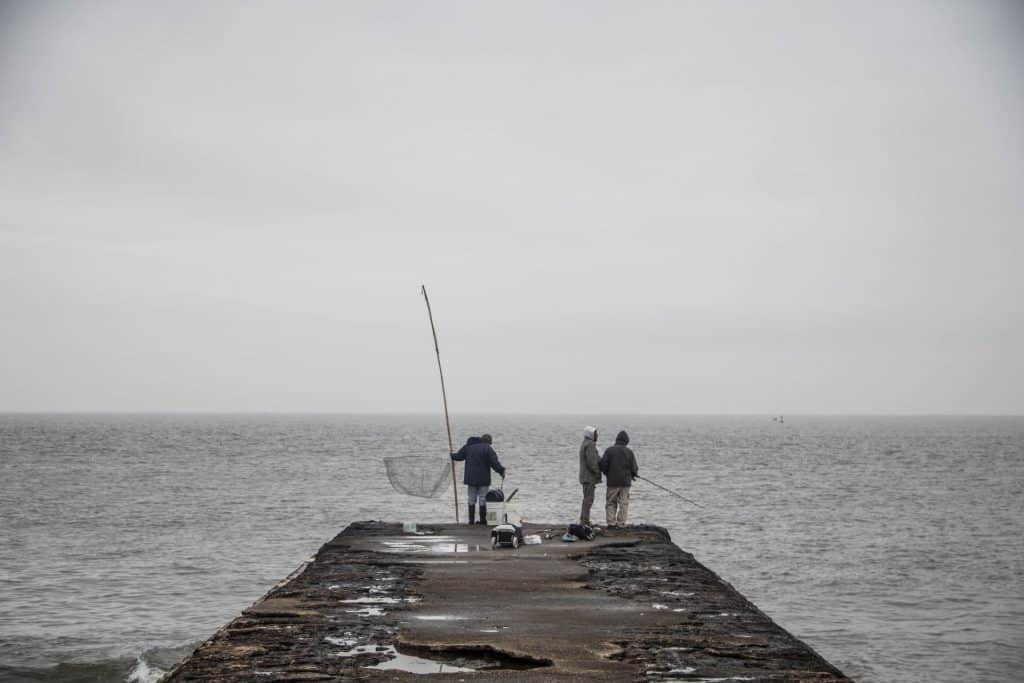
Fish have poorer visibility
The rain causes turbidity or makes the water murky and dark as the surface runoff brings sediments, vegetation, organisms fish feed on, and other materials into the water.
Fish have difficulty seeing you or your kayak, or boat in the murky water. Because they can’t see you, they are not as easily scared away as when the water is clear. The rain also usually means cloud clover that further limits the fish’s visibility compared to when there are clear, sunny skies.
The murky water and low visibility mean the fish are also less likely to see your lure or bait, break the water, but they will still be attracted to both.
During the rain, fish are already actively feeding on worms and insects washed into the water by the runoff. The fish are therefore more likely to bite on your lures and bait.
Even though fish can’t see the bait and lures they can sense food even in dark conditions and they will also feel the vibration of your lure once it’s submerged.
Fishing spots are quieter
Some fishermen look forward to fishing in the rain because they know that the rivers and lakes will be less crowded.
Many less experienced anglers are reluctant to risk the possible discomfort the rain may cause. They may not have prepared adequately to cope with the wet conditions, or they may not be aware of the benefits of fishing in the rain.
Run-off spots are more active
Surface runoff brings worms, insects, microorganisms, and nutrients into ponds and lakes. These food sources attract fish to feeding spot locations like creek inlets, mud-lines (sedimentation deposits), eddies and tributaries.
Baitfish are drawn to these locations and they, in turn, attract larger sized prize fishes like huge trout or northern
More fish are present
Fish tend to hide at the bottom of lakes and ponds where they can shelter among rocks and algae forests.
During rainfall; the water gets muddy and dark; fish feel safer to venture closer to the surface where they feed on insects and other smaller baitfish.
Experts also hold that rainfall oxygenates stagnant lakes, ponds, and swamp water. Experts believe the increased oxygen levels make the fish more active.
Atmospheric pressure
Low atmospheric or barometric pressure conditions lead to cloudiness and rain.
More research is needed to understand how low-pressure impacts to fish. But, one school of thought believes that pressure is relieved from the fish’s swim-bladder contributing to their increased movement during rains.
Easier to catch larger fish
Some fish are known to be very active when it rains because of the increased potential to feed. They strategically eat more to bulk up. These fish store fats preparing themselves to survive the cold winter temperatures when food becomes very scarce.
Other fish prepare themselves to reproduce and increase their sizes to attract more potential mates, especially during Fall (Autumn).
This urge to bulk up is why you’re able to encounter fish like carp that have reached their maximum size just weeks before Winter.
Disadvantages of Fishing in the Rain
Low visibility
Just like how the fish are disadvantaged by the difficulty of seeing through the water, you will also experience low visibility caused by turbidity, cloud cover, rainfall and mist.
Low visibility affects you more the less familiar you are with the area. You may not be able to identify mud lines or spot a nearby school.
More challenging for your equipment
Your equipment is only a problem if you’re unprepared for fishing in the rain.
Your boat or fishing kayak can end up taking on extra water, and your gear can get soaked. Planning can save you from these inconveniences. We would always recommend using the best fishing rain gear possible.
Cold, wet and uncomfortable (If un-prepared!)
Wet and cold conditions can make you ill, you will be very uncomfortable, especially when you are stationary while maintaining your focus and concentration.
It can become quite dangerous if fishing in cold conditions during precipitation without the proper gear as you may expose yourself to hypothermia and frostbite.
If you are fishing near fast-flowing water from a bank, or from a kayak, it’s always good practice to wear an inflatable PFD.
Severe weather
Severe weather such as heavy rain, heavy wind, and lightning put your safety at risk. Your safety is not worth any prize fish or big catch you can make in rainy weather.
Always make sure to check the weather forecast ahead of time. Whilst fishing in the rain has its advantages, if the weather is really bad, don’t go.
Tips to improve fishing in the Rain
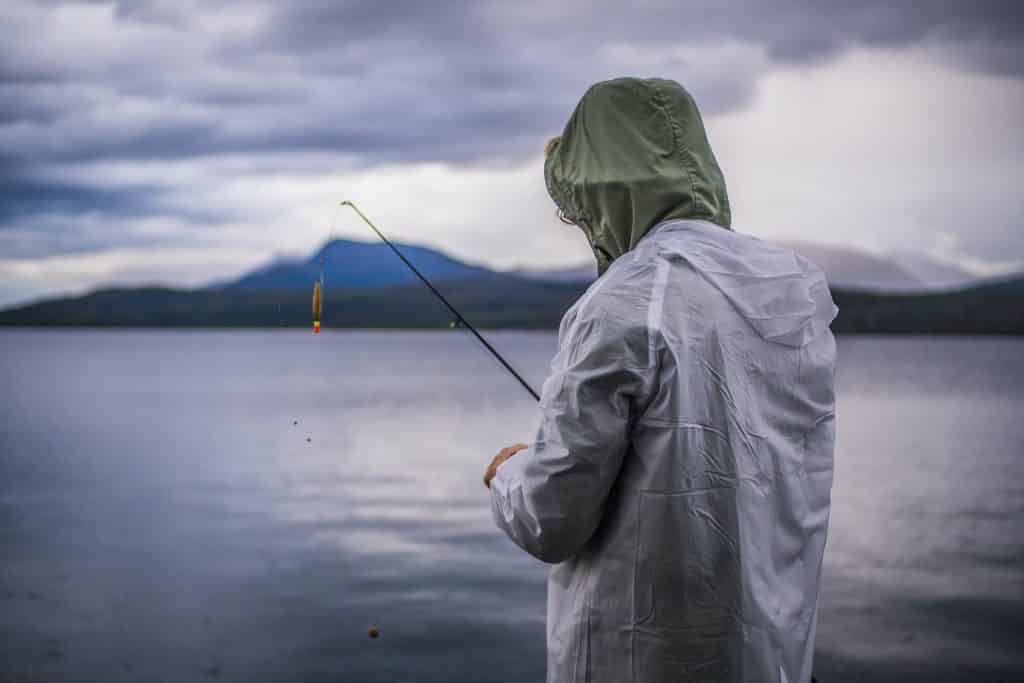
Put health and safety first
Health and safety should be your priority. Monitor the weather closely and make wise decisions while out on the water. Don’t be afraid to abort the mission if conditions deteriorate.
Select the best gear to cope with the rain
Prepare thoroughly to ensure that you wear slip-resistant and water-resistant or waterproof apparel and secure your gear with waterproof anti-slip materials. If you use a boat, look into getting a bilge pump or a kayak designed to drain excess water via scupper plugs.
Study your fishing ground
Familiarize yourself with the body of water in advance. Know all the mud lines, streams, creeks, and runoff drain areas where the fish feed most. These may not be noticeable during the rain when the water becomes muddy.
Track the wind and water temperature
The wind stimulates currents and drifts in still bodies of water such as lakes. The currents move food and small fish in the water.
If you follow these food sources, you will find the largest fish. Also; if you are in a colder region then finding warmer waters can increase your chances of landing fish, as they will gravitate there.
Chose lures strategically
During rainfall, use lures that stay closer to the top of the water where the fishes will be feeding. The noisier and more colorful the lure; the better they will attract fish in turbid conditions.
Move quickly
Fishes are feeding during the rain and always moving. You must be very responsive and observant to find the hottest spots quickly.
Conclusion
There is no doubt that fishing in the rain offers many advantages, and in my opinion, the pros vastly outweigh the cons.
To get the most out of the experience; it’s best to approach it with an open mind. Take adequate safety precautions to protect yourself and your equipment, and you need to prepare thoroughly.
We truly hope that this post has gave you some insight into whether it is better to fish in the rain or not, and hopefully it helps you land more monster fish!
Happy fishing!

